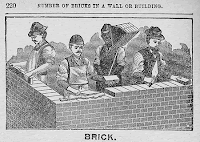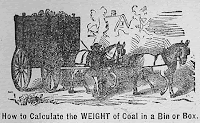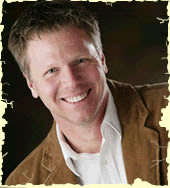An article in the February 25, 2008
Education Week entitled
Waiting for the Transformation makes a good comparison of two education systems. One system focuses on:
- time
- teaching
- formal classrooms
The second system focuses on:
- outcomes . . . instead of time spent in a class (45 min, 1 semester, etc.)
- learning . . . instead of teaching the material (finishing the book, covering the curriculum, etc.)
- education in and out of school . . . instead of turning education on and off and limiting teaching opportunities

The author
Arthur E. Levine (photo to left) describes our typical education system in this article by saying:
It puts all students through a common process tied to the clock; children progress based upon the amount of time they spend being taught in a classroom, with all students required to master the same body of knowledge in the same period of time . . . We now know that all students learn at different rates; the same individual even learns different subjects at different rates. It would make more sense, therefore, to have an education system that focuses on what students learn, rather than what they are taught, and sets common standards for what they must learn, rather than common amounts of time for them to learn those things.
First, I think our school system at
DCG is implementing this idea in many different classes and with a variety of strategies. I still think as a whole our entire society needs to renew their concept of the effective educational model and begin to think in terms of
learning and not just
teaching. To evaluate the process on
outcomes achieved instead of
time spent.
When I had a construction business both the customer and myself wanted the same thing. We wanted the project completed fast and done right. Neither of us just wanted me to spend time working. We wanted the project done. Time was the enemy. Speed and efficiency made me money and gave the customer their product. It is not about working longer, it is about getting the job done.
Part of the teaching experience is seeing students process information and perform tasks proficiently at different speeds. An example of me as a teacher resisting this tendency can be seen each year in the shop during our nine week woodworking class with the eighth graders. If the above information presented by Levine is true (and, I know it is) why do 100 students in seven different classes all end up on the same day ready to begin staining their oak end tables? The answer is not something I want to brag about. It happens because I manipulate (as in, I slow down) the learning process for the first seven weeks. I do this by:
- limiting the amount of knowledge I present so that the faster students are continually hitting a wall (figuratively) and need to beg me to show them the next step.
- creating different standards of excellence to be reached. For example, the faster more proficient student may be asked to expend more energy or accomplish a task with out the benefit of "hidden" techniques or tools.
- having skilled students repeat a process they already understand by helping catch up another student.
Now, all of these techniques of manipulation have an education silver lining. Some student may produces a finer project, refine their skills, or develop leadership ability. My point is that the way the eighth grade class is set up I need to "manipulate" the learning process in order to manage the class. (Of course, a "better" teacher will suggest I create additional learning situations for the students, but, I would bet this teacher has not made one hundred oak end tables with one hundred thirteen year old kids! I don't want additional learning situations! I want order and
efficiency.)
I assume many teachers feel the same way about progressing through the chapters of their curriculum. How can you have a few students in chapter 13 while others are still reviewing the material in chapter 8. In fact, if what Levine says is true then in a class of 25 students a teacher may have 25 different lesson plans.
And, this is exactly what I have set up in the seventh grade shop classes.
In the seventh grade classes I have a completely different instructional system organized. I literally have 18 different lesson plans all happening at the same time. The students work in partners, or alone, to acquire the knowledge and perform a task at a module in basically a three day period. Daily students move through these stations at different speeds depending on skill, previous learning, interest, motivation, and whatever else their personal
repertoire of characteristics bring to class. We have modules that include construction, electrical wiring, computers,
cnc lathes, assembly, etc. We add to them each year in the way of content, experience and instruction.
Some students successfully achieve in a class period what others struggle with for four days. Or, some students get interested in a station and hang around it for four days gaining additional knowledge and developing additional skills while others do the minimum work with the least amount of knowledge and move on to something they find more interesting. Concerning levels of interest in the variety of modules, the students have never agreed which one is the best module. What one student considers boring another student will consider their favorite.
In the seventh grade class we have the critical content and skill that is communicated to each student, but after that the sky is the limit. There can easily be additional modules added. The level of required skill and knowledge can be increased at the modules we do have. I have plans for three more modules for next year and students are consistently "
experimenting" with the material and knowledge that is available. In fact, many of the students ideas have developed into the actual project that is now required at certain modules.
I am not going to change my nine week eighth grade woodworking class because it is what it is. Each eighth grader will build and finish an oak end table. I see students each year who could easily build the end table in 4-5 weeks, but if everyone is going to achieve at the level we want, some are going to have to engage in learning at a different level as we explained above.
But, I do wonder if our seventh grade classroom could contribute to what Levine calls a "
revolutionary change" that "will necessitate an individualized, time-variable system of
education." I like the idea. I have seen it work. I know Levine is heading the right direction and I know the answer is going to come in a classroom organized in an educational
system that is understood by a society that sets priorities on learning and outcomes and not on the time spent teaching.
Could more classes be set up like our seventh grade modules? Would it be more effective? Would teachers enjoy the module set classroom? Do you wonder if China is doing this?
Mr.
Wiemerswww.mrwiemersshop.com

 Today I demonstrated the lathe to the sixth graders. There are six classes of sixth graders so we made a vase in each class. After we cut and sanded each vase, we drilled a hole and applied polyurethane. Above you can see the six vases we made today as demonstrations in each of the classes. Below is a slide show of pictures from class today.
Today I demonstrated the lathe to the sixth graders. There are six classes of sixth graders so we made a vase in each class. After we cut and sanded each vase, we drilled a hole and applied polyurethane. Above you can see the six vases we made today as demonstrations in each of the classes. Below is a slide show of pictures from class today.














 In 1902 J. L. Nichols & Co. published a book by Professor J. L. Nichols called The Busy Man's Friend or Guide to Success by Facts and Figures. Originally written in 1896,
In 1902 J. L. Nichols & Co. published a book by Professor J. L. Nichols called The Busy Man's Friend or Guide to Success by Facts and Figures. Originally written in 1896, 






















 When I was in fourth grade, still back in the 1960's, my mom let me sign up for an afternoon paper route to deliver the
When I was in fourth grade, still back in the 1960's, my mom let me sign up for an afternoon paper route to deliver the 










